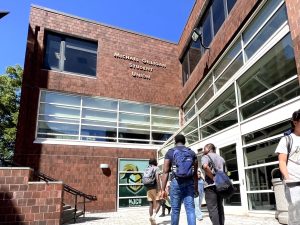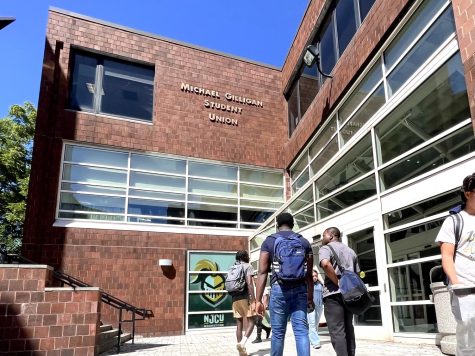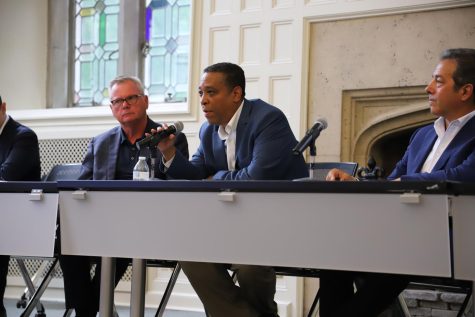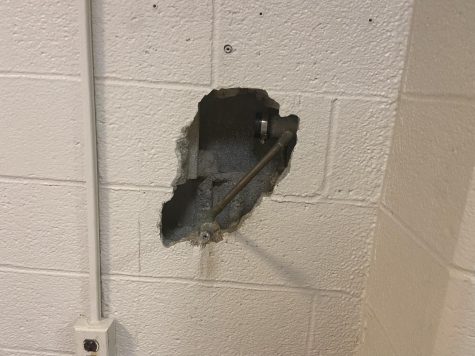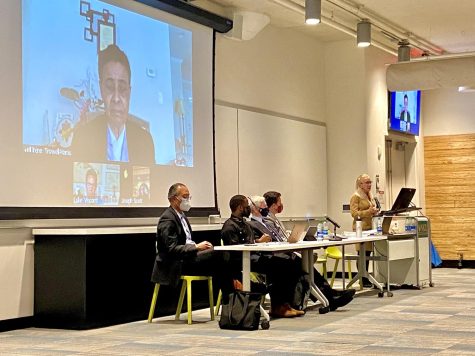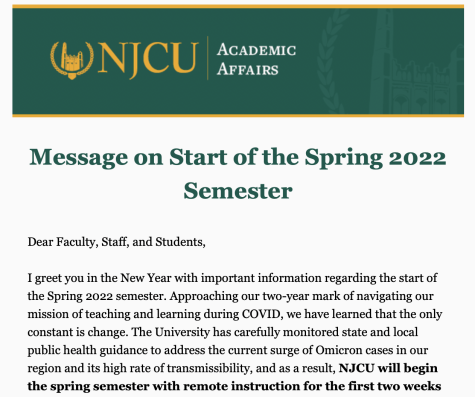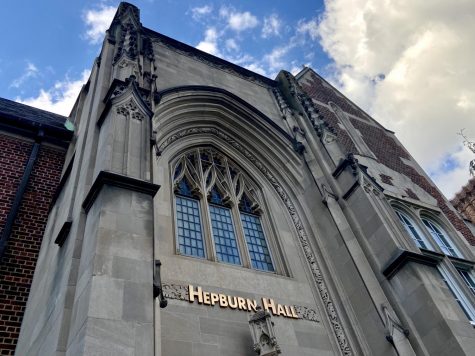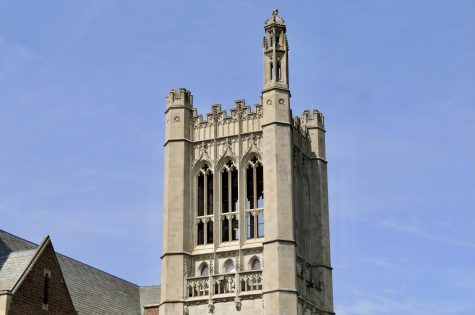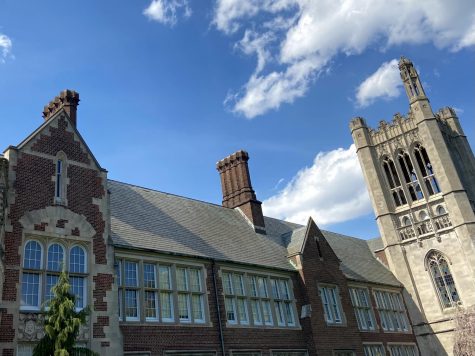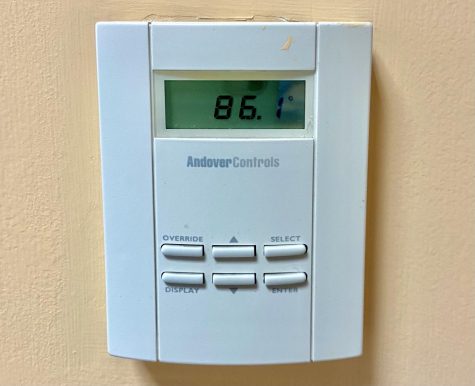Open House demonstrators tackle ‘education turmoil’
April 28, 2015
A demonstration was recently held at NJCU to address some of the biggest hardships facing education today – including student debt, the corporatization of higher education and adjunct faculty working conditions.
A small group of professors and students took advantage of campus visitors during Open House on April 18 to hand out flyers and pamphlets addressing some these growing concerns.
“My intention for (this) action is to help make incoming and prospective students and their parents aware of higher education’s ongoing corporatization, and the affect that has on both the cost and quality of their education — not only at NJCU, but at every college they will apply to or attend,” said Ann Kottner, a member of NJCU’s faculty union, AFT Local 1839.
According to the Federal Reserve Bank of New York, student loan debt in the U.S is currently over $1 trillion.
The money students owe, surpass credit card debt and auto loans.
“I’m attending this rally because I want to model the kind of action that incoming students should feel safe taking for themselves,” said Millie Cura, a recent NJCU graduate. “One of my high school teachers (also an NJCU alum) tried so hard to get me to understand that students have power and that their voices matter.”
Among the pamphlets handed out during the demonstration was a 2014 article entitled “What parents need to know about college faculty.” The PBS Newshour article, written by Joseph Fruscione, argues that “its’ the students who lose…when universities ‘pay enormous salaries to upper-level administrators while cutting faculty salaries by dismantling tenure and moving faculty to piecemeal adjunct positions.’”
Kottner, who is also an adjunct professor in NJCU’s English Department, told The Gothic Times that the proportion of adjunct faculty teaching at NJCU is lower than the national average and the proportion of tenured professors teaching classes is higher than many colleges and universities.
“The main disadvantages adjunct faculty has are poor pay, job insecurity, and lack of compensation for office hours or other work done outside the classroom,” she said.
Adjunct faculty pay is calculated by the number of hours spent in the classroom (contact or credit hours). The provisional teachers need reapply every semester for any available classes as well as seek the rare opportunity to teach a summer class.
In the past, students have complained about adjunct professors not having office hours.
Kottner noted, “office hours for meeting students are not compensated, which requires cancelling class time if we want to meet individually with students for conferences.”
NJCU officials recently said they are considering using some of the vacant space in the Professional Studies building – previously used by business faculty – for these professors to have office hours.
“I had heard about this and can only welcome more space for adjunct faculty to use for student interactions. Being able to meet students privately and mentor them helps retention numbers and it acknowledges our status as professionals,” Kottner added.
NJCU officials did not immediately respond for a comment.







